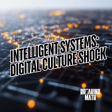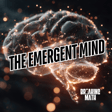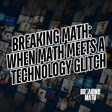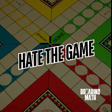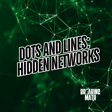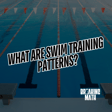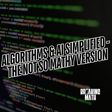Become a Creator today!Start creating today - Share your story with the world!
Start for free
00:00:00
00:00:01

BFNB1: Food for Thought (Discussion about Learning)
This is the first group podcast for the podcasting network ___forNon___ (pronounced "Blank for Non-Blank"), a podcasting network which strives to present expert-level subject matter to non-experts in a way which is simultaneously engaging, interesting, and simple. The episode today delves into the problem of learning. We hope you enjoy this episode.
---
This episode is sponsored by
· Anchor: The easiest way to make a podcast. https://anchor.fm/app
Support this podcast: https://anchor.fm/breakingmathpodcast/support
---
This episode is sponsored by
· Anchor: The easiest way to make a podcast. https://anchor.fm/app
Support this podcast: https://anchor.fm/breakingmathpodcast/support
Transcript
Introduction to Casino Games
00:00:00
Speaker
Hello, it is Ryan, and we could all use an extra bright spot in our day, couldn't we? Just to make up for things like sitting in traffic, doing the dishes, counting your steps, you know, all the mundane stuff. That is why I'm such a big fan of Chumba Casino. Chumba Casino has all your favorite social casino-style games that you can play for free anytime, anywhere with daily bonuses. That should brighten your day a lot. So sign up now at ChumbaCasino.com. That's ChumbaCasino.com.
00:00:27
Speaker
No purchase necessary. D.W. report prohibited by law. See terms and conditions. 18 plus. Lucky Land Casino asking people what's the weirdest place you've gotten lucky? Lucky? In line at the deli, I guess? Aha, in my dentist's office. More than once, actually. Do I have to say? Yes, you do. In the car before my kids PTA meeting. Really? Yes. Excuse me, what's the weirdest place you've gotten lucky? I never win and tell.
00:00:50
Speaker
Well, there you have it. You can get lucky anywhere playing at luckylandslots.com. Play for free right now. Are you feeling lucky? No purchase necessary. Avoid reporting by law. Eighteen plus terms and conditions apply. See website
Breaking Math Podcast Announcements
00:01:00
Speaker
for details. Somebody stole our website. Oh, no, whatever. Shall we do? I mean, I guess you could go to the new website. HTTP colon slash slash breaking math podcast dot a P P with no W. W. W. For all you old timers.
00:01:19
Speaker
So breaking me up podcast dot app. I mean, if you're into that sort of thing.
00:01:26
Speaker
Hey, Breaking Math fans. First, I want to thank you for listening. I have an important message for everyone. You can start your own podcast right now with Anchor. Anchor lets you create and distribute your own podcast. Just get an idea, record, and upload. It's just that easy. Anyone can do it. I'm on my way to accomplishing my dream, and you can too. Just get on your device's app store and download Anchor. It contains everything you need to make a podcast. With Anchor, you can put your podcast on all the big platforms.
00:01:54
Speaker
Apple Podcast, Spotify, Google Podcast, Amazon, and more. Reach the whole world with Anchor. Best of all, Anchor is free. You have nothing to lose with a free platform. Download the Anchor app or go to anchor.fm to get started.
Learning and Podcast Collaboration
00:02:18
Speaker
Hello, I'm Jonathan, and as you may know, Breaking Math is part of the podcasting network, Blank for Non-Blank. We recently did a group episode with me and three others from Blank for Non-Blank, where we discuss the nature of learning. This is that group episode. We'll have another one out in three days. And I had a lot of fun doing it, and I hope you had a lot of fun listening to it. So it's going to be a little bit of a break from our traditional format, and
00:02:41
Speaker
Yeah, let us know how you liked it at breakingmathpodcast.gmail.com. Thank you.
00:02:59
Speaker
kind of obscure but very cool podcast in my opinion that cover educational topics but in a way that is fun and easy to understand for this particular episode we thought we would take a single topic and approach it from our multiple areas of expertise so we have other than me we have a linguist and a mathematician and a scientist who will be talking about learning
00:03:26
Speaker
Now, it's very important that I tell you who I am. I'm Stephanie Minova and I am the co-founder of this network, or founder, I don't know and I don't frankly think it matters very much. If you'd like to know about my credentials, I'm very under qualified, but I'm having a lot of fun. I study English literature and film at a school in Boston and I basically like wander around and observe things.
00:03:52
Speaker
and that is what inspired me to kind of get this network going because there are people who really know a great deal about things factually and can come explain them to me, so I was personally very excited to have a nice group of advisors.
Defining Learning
00:04:08
Speaker
Now, something important you need to know about the episode is that it comes in two parts. That would be best explained as part one and part two. Part one is
00:04:17
Speaker
Also known as the short part. And part two is the long part. If you'd like to know what they're about, well, they're both about learning. They were both supposed to be about learning. But part one turned out to be mostly us trying to define what learning actually is and the process of it.
00:04:32
Speaker
And we are not very good at staying on topic, especially me. So I kind of sidetracked the conversation into things that I personally think are more interesting and easier to talk about. And we started talking about things like psychology and perception and all the kind of vague things you can't objectively describe that those are my kind of topics. So I was really happy to have a whole hour and a half to talk about those. But that episode is genuinely very cool. So I highly recommend you stick around for part two.
00:05:02
Speaker
Now, without further ado, I would like to introduce you to each of our hosts individually before we dive into a very interesting and very worthwhile discussion about learning really an excellent conversation. Hope you enjoy!
00:05:18
Speaker
Hi, I'm Chris Cogswell from the Mad Scientist podcast. My show focuses on the science and pseudoscience and like the history of science and philosophy behind pseudoscientific or nonscientific claims. So we try to teach hard science and teach the philosophy of science and the history of science by looking at the development or loss of weird or kind of funny
00:05:42
Speaker
things over time. Hi, this is Seth, the host of the Let's Talk Talk podcast. It's a podcast about all things linguistics. The idea of Let's Talk Talk is to talk about language in such a way that people that aren't language scientists get a kick out of it. I believe that all people are language fans and they just might not know it yet. And I want to make sure that they get the information they need to
Models of Human Learning
00:06:05
Speaker
know it. What is mathematics? When can we learn from it?
00:06:09
Speaker
These are questions that we've been asking ourselves for a hundred centuries. But until recently, there has not been a podcast suited to answering them. That has changed with Breaking Math. Hosted every two weeks by Jonathan Baca and Gabriel Hirsch, who is not here. Breaking Math delves into many mathematical topics and paramathematical topics like language, science, and the relations between them. Listen. So, uh, can I start doing episode stuff now?
00:06:40
Speaker
Yeah, let's do, let's do, let's do the episode. Okay. So I think that I'm going to put in probably a different intro, like I said, but I think that idea behind this episode in general was that we have a lot of different backgrounds. We come from a lot of different backgrounds, have expertise in different areas, but they're obviously subjects that are, are not unique to like a specific field. And I think that learning and the development of artificial intelligence and
00:07:09
Speaker
The way that learning occurs and the way that it's processed is something that we can all discuss and talk about and that's very relevant to, you know, what's going on in science and other fields right now. So, that said, I've written a list of questions. I want to get some insight into the way that learning works from all of your perspectives, what you think consciousness is and how it kind of operates to execute different tasks.
Learning vs. Cognition
00:07:34
Speaker
talk about this in terms of human consciousness and machine consciousness and if that is different at all to any degree and see if we can come to any conclusions about the process of learning and the way it might apply to machines and people. So that said, I guess the first question to ask you is does anybody have an idea or can explain a model of the way that human learning works and how do you view it from different areas?
00:08:04
Speaker
I'd like to say that human learning, having tutored everything from kindergarten through grad school, is at a lower level, just mimicry. And that's a good form of learning, but at a certain level, it's mimicry of a deeper concept. And I think it's that deepness of concept that we have to discuss rather than the mimicry itself, which might be the focus of a lot of people's attention.
00:08:33
Speaker
And what is the deeper concept? I think the people have different opinions on that. In the 1980s, I think it was fashionable to say that this deeper concept depended on what style of learner you were. So it was kind of an umwelt dependent thing. I personally think that this deeper concept has to do with minimal representation. What's the minimum amount of information they need to represent a concept? That is what's being mimicked. I think though that that is so that
00:09:02
Speaker
The mimicry portion of learning is something, it's almost like an empty sort of learning though, right? I mean, who cares if you can, you know, name off all of the capitals of the States, you know what I mean? A robot could do that. I mean, that's kind of the heart of the question, right? It's. But that's mimicry of a very, at a very low level. It's literally. Yeah. I think, I think, I think, well, that's what I'm saying. I think what you're trying to get at is,
00:09:27
Speaker
It's mimicry, it's also being able to mimic a pattern. It's not necessarily being able to mimic the exact facts or the exact, okay, you input these things into this black box of whatever, some method, and then you get out these results. It's more being able to then apply the generalized concepts of, well, how do I gather information? How do I process information? How do I display information in a useful way? That's the more important part of learning.
00:09:55
Speaker
Well, that's rather that's the more important part of of that's the sign of a master of someone being able to actually master a field. Right. I mean, that's that's kind of the the difference between, you know, I mean, why do they make PhD students teach a course in their field? It's to be able to prove they don't, you know, oh, my goodness, they actually know what they're talking about.
00:10:14
Speaker
So to piggyback a little bit off of what Chris was just saying, we can sort of illustrate this via, well, you guessed it, linguistics. So the idea in linguistics is that there's this critical age and we can see it all the time. So when little kids are growing up, they do mimic with language and they learn in these chunks.
00:10:32
Speaker
But they also have a poverty of a stimulus. They don't learn every possible combination of words and they can't render everything off the top of their head. So it's not just mimicry, but what you can do, what you can see is that once they hit about seven years old, they start making mistakes based on the patterns they see
00:10:50
Speaker
You performing so you'll you'll notice that very small kids will have like perfect grammar. They'll say things like oh, I you know I went with mom, you know But then as soon as they're seven they'll say goad because they recognize your derivational morphology The ed is means past tense and they're like, ah, that's a rule and then we say no, that's wrong It's actually not goad. It's went and then they're confused again because they're no longer mimicking their
00:11:16
Speaker
learning. So there's a difference in linguistics between the acquisition and learning. And I'm not sure what that can say for general cognition, but I have a feeling that they're very closely related. And I would imagine that there's a critical age for human beings to start learning as opposed to acquiring information. Sorry, can I ask a question really quick? So based off of what you all said, I kind of want to think like, would you guys agree with me
00:11:42
Speaker
that this is kind of a visual model of what you're saying learning is. So you have an input, you have a processor that's partially based on mimicry. And like Seth said, there's a lot of pattern recognition. You notice certain rules and you basically continue to replicate those rules in your thinking. And those processes get more and more complex. And then there's also an output. And John said that there's a deeper component beyond that.
00:12:09
Speaker
Is there anything wrong with that model of thinking as the mind is like a learning processor, is a computer that takes input, develops rules that grow increasingly complex, and then creates kind of an output and that the cycle goes on and on and on?
00:12:23
Speaker
I'd like to establish a consensus between us and this discussion about what we mean by learning. Do we mean is, I mean, of course is what we're doing. Do we mean that creativity exists in relation to learning or is creativity a part of learning as we understand it?
Abstract Thought and Innovation
00:12:42
Speaker
Isn't learning the acquiring of information? No, that's the thing though. It can't just be that because if that's the case, then
00:12:53
Speaker
And acquiring not just content information, but contextual information, so learning of new processes and learning of new methods of thought.
00:13:10
Speaker
So there's a very interesting concept in the philosophy of, it kind of stems from the philosophy of language, but really it's part of a larger philosophical school of thought called naturalism. And so the idea is that
00:13:25
Speaker
the major difference between animal cognition and human cognition is that animals are able to learn those kind of simple stimuli response things that we've been talking about so far, right? So, but they get them wrong, they make mistakes. And so the difference between a human mind and an animal mind ultimately is being able to then abstract away from all of the patterns and things that you've recognized in the world and say,
00:13:54
Speaker
how can I apply this into a situation that I have never been into, right? Right. So you, you can be deserted on a desert island and you might have to find,
00:14:06
Speaker
food of a sort that you've never hunted for before, never even considered to be food, right? Whereas an animal, say, would not necessarily, I mean, of course there's differing scales of intelligence in animals as well, but I mean, like the perfect example they always give is that of the frog, right? A frog will
00:14:25
Speaker
A frog will try to eat any black moving dot on a screen, on a piece of paper that's moving. It doesn't matter if it's really a fly or not. What the frog is actually seeing isn't that is a fly, it's what I eat. What the frog is seeing is that's a black moving dot, I eat those. It's a different kind of concept. They have not named the thing.
00:14:50
Speaker
distinguished it from other things, like there's a more conceptual way of being able to see, you know, there's the blackness of the dot or the darkness of the color, there's the shape of the dot, there's the movement itself, there's maybe a noise associated with it or even a smell or something that the frog is sensing. In the frog's mind, all of those things individually each represent potentially
00:15:15
Speaker
this food source, right? But for humans, we're able to get that sense and then we're also able to pick apart every aspect of it, right? So if you see an animal that's, I don't know, some color you've never seen before, which by the way, that was a really fascinating discussion you guys did on breaking math on that, actually.
00:15:32
Speaker
I thought about the color you've never seen, right, where you put the red and blue together. That's one of my favorite things to show people, you know, when I'm at a party with red and blue cardboard paper. Just normally, you know what I mean? That's just like I carry them right in my back pocket, whatever. But the difference between then human cognition and animal cognition, at least in this kind of viewpoint, and at least in my understanding of it personally, would be the difference between
00:16:00
Speaker
You know, they call it a this, that mode of thinking versus a more elaborate chain of thinking. For us, the causal chain isn't as simple as it is for animals. And I think that when you're just taking in
00:16:17
Speaker
patterns, even if they're very complicated patterns, that's missing a point of the human cognition because human cognition can extrapolate away from patterns that have never been part of the chain before. Do you know what I mean? That's correct.
00:16:33
Speaker
One thing I'd like to bring up, I'm a programmer by trade, and there are certain algorithms, like Dijkstra's algorithms and A star search, which look similar, and the representation of these algorithms is something that can be said to be data. However, these algorithms can do anything that is mathematically possible and therefore physically possible.
00:16:53
Speaker
So if you can say that there is a similarity between two programs, can't you say that there is a certain amount of data no matter how twisted it becomes in the human mind and how much more like a program it becomes in the human mind that is being acquired through any process of learning? Say that again.
00:17:13
Speaker
Can you kind of expand on that point? I think I might have missed the question or the distinction. It seems like you're saying that humans learn differently because we can extrapolate away from simple patterns, but what I'm saying is
00:17:31
Speaker
that the line is very fuzzy because these patterns themselves, even if they're programs of patterns, a program being any physical process, like the movement of stars can be considered a program. Some people argued the finer details of that, but whatever.
Language Processing and Conceptualization
00:17:47
Speaker
If you consider all these things, a program and certain programs look like one another, like, for example, A-star search looks nothing like, um, like, uh, quick sort. Um, and those are two different types of algorithms. Can't you say that any data acquisition, so when the toddler says, um, we go to the store instead of we went to the store.
00:18:11
Speaker
Isn't that just a pattern that represents the functional representation of grammar in that child's mind? So I think the distinction that Chris was actually making was more so between humans and animals in that, you know, obviously that humans are capable of synthesis and like the forming of
00:18:35
Speaker
of conceptual ideas about things. I don't think that that conflicts with your argument that machine learning is very similar to. Right, I don't think so either. And you can actually see this exemplified in grammar. We don't grow up having heard every possible rendering of every possible sentence. So how are we able to build it? How are we able to use that system? We have, you know, Chomsky said that we have a poverty of stimulus. So we can't possibly
00:19:03
Speaker
get every possible combination. So I can come up with a sentence that has never been rendered before, which would be like, the angry cup sleeps furiously, right? So it means nothing. And it's probably never been said before. So how could I possibly render that if it's just data input, and not just some sort of processing that is different than animals?
00:19:23
Speaker
Because animals can communicate, they can say, hey, a monkey or an ape can say there's a snake and they run up a tree, essentially. But they can't say, hey, Jim, yesterday, there was a snake on that trail. So next time you go down that trail, you might might be good to be cautious because there are lots of snakes there. That can't be done by animals, but it can be by humans without it being directly said to them beforehand.
00:19:43
Speaker
Are we saying that the difference is between humans as they exist currently as a species? Or are we saying that there is a fundamental difference between humans and animals? Because my argument is and always will be that there's no fundamental difference. They're just kind of a loop that's been closed. That's not closed in other animals. I mean, I would, I mean, I would, I would kind of argue actually that what we are training machines to do now,
00:20:12
Speaker
is closer to what animals do than it is to what humans do. That's what I would argue, that just because you have a super complicated brain with plenty of input and lots of different sensory apparatus or other different ways to feed it input and have it learn about the world, I think that there are still things there that, and this kind of gets into a more philosophical side of this argument, but
00:20:42
Speaker
There are parts of human cognition that an animal or a robot even, forget the animal for this discussion, let's say, that even a robot, a robotic mind could not fathom, right? We can suppose
00:21:00
Speaker
I think there's something to be said for the idea that we can feed into the mind of a computer, okay, you have a thing like an ocean, you have a thing like a serpent, you have a thing like a boat, whatever, but the robot may not ever come up with or find any meaning, particularly in the
00:21:19
Speaker
the putting of those three things together to create a mythology about a giant serpent that hunts the seas for sea travelers. You know what I mean? I'd say that that's just not closed loop yet, though. I mean, there's so much about. Can you say what you mean by closed loop? Sure. The difference between telegraphic speech and speech as we recognize it is what I mean.
00:21:44
Speaker
there's some loop that's being closed. And what I mean by loop is, I mean circuit. Any mathematical function can be represented as a circuit. If the circuit doesn't feed back to itself, you have a very limited amount of stuff to work with. And I think that the human mind is a circuit that isn't closed. Well, okay. So here's the thing though, right? We don't just think in words. No, right? We don't just think in words.
00:22:12
Speaker
Right? We might have a feeling and then try to explain it to ourselves and say, I'm sad today or something like that. But we actually think and we process and our computers, our brains have
00:22:30
Speaker
I suppose multiple different languages available to them and language here, I just mean it in terms of like a way of communicating knowledge to ourselves. And the other thing as well is that we are, we are capable of conceptualizing to ourselves
00:22:49
Speaker
inputs that have never been from composite inputs. Correct. Right. I have definitely something, but besides that as well, we can recognize ourselves as doing that trick.
00:23:06
Speaker
Right. It's a kind of a very subtle difference, but it's almost like it's almost like being within. I mean, I don't know. We can go to any any silly pop culture reference we want here. Right. But it's like Neo existing in the matrix, but also knowing that the matrix is a construction of his mind. It's it's right. I mean, right. So like it's pretty I'm confident that that's recursion. Right. So sort of conceptual recursion. I think your brain is recursive. So it can think about itself thinking.
00:23:37
Speaker
I would say that it's not just recursive, and I totally agree with the whole point about recursivity. Recursivity for maybe people who are listening who don't know what it is, is just something inputting itself into itself.
Philosophical Aspects of Cognition
00:23:52
Speaker
Because I could tell you from experience, having experienced some very vivid psychosis, that there are parts of the mind that use parts of the mind that you think are only yours.
00:24:04
Speaker
And if that can be done using the human hardware, then there has to be a constellation of different recursions. And I know that when I think, I don't just think in words, but I do think some words. Me too. Yeah, of course. Yeah. Can you give an example of a time you might think in words?
00:24:23
Speaker
Uh, yeah. Um, looking for things, um, because things have names. Uh, I could imagine what the thing is, but when I'm actually looking for the thing, I call out its name in my head, just like you might do a dog. And I think actually that dogs are probably important to the human, uh, conscious experience just because of how our co-evolution with them. But that's beside the point.
00:24:43
Speaker
No, yeah. So the reason I bring that up is that concepts come before labels. We just use the icons to map onto our concepts. So like if I said, if I explain the concept that language affects our perception of the things around us, that would be called the Sapir-Worf hypothesis, or a very light Sapir-Worf hypothesis. But if you had never heard of the Sapir-Worf hypothesis, and I explain the concept to you, you still know the concept without having a word for it.
00:25:13
Speaker
it. Oh, yeah. And I would go into that and I would also say that, for example, when I'm editing audio, when I'm looking for disgusting mouth noises, there's a certain... I don't have a word for... Okay, I guess I do have a word for it, discussing mouth noises, but I'm not thinking disgusting mouth noises, disgusting mouth noises. I'm thinking
00:25:36
Speaker
Like the whole time something to edit out now. Great, great. Yeah, no, I'm I agree. I agree with that with those points. I think well, I think there's also something to be said, though, about where. So I always like to do this on on our, you know, kind of our show, whatever is going into where does where do these arguments logically then lead? Right. If we accept that because, you know, it's
00:26:07
Speaker
I mean sophistry is all good for its own sake and rhetoric is is all nice and good but if you know if you want to be logically consistent with yourself or at least with what you're saying then those these things have to go all their way right they have to you have to make them make sense in your worldview
00:26:25
Speaker
So if we're accepting, you know, I think this argument always comes down to the very interesting philosophical question of a moral question, an ethical question of if we are just computers ultimately, right? If computer learning and computer cognition is not different than human cognition and human learning, then
00:26:47
Speaker
Do we have the ability to make choices? Because robots don't, right? Machines will not have the ability to make choices. Even if they seem to be making choices, ultimately we know they're not because we have programmed them with a certain set of intrinsic rules, right? They are at the baseline.
00:27:09
Speaker
set to some rule standard and you know you can't I mean it's as nice as it might be to think that there's as nice as there is to think that there must be some rule that says like there are no rules right like that's still a rule I mean like there's something there right
00:27:25
Speaker
You know, so what you're describing to me is a system of descriptive rules as opposed to prescriptive ones. It doesn't make them any less of a rule. It just means that they occur without having been explicitly, you know, sort of had the groundwork laid down for them. They haven't said you have these constraints. But I keep using language because that's what I know. So the idea is that
00:27:50
Speaker
When people say, hey, you can't end a sentence with a preposition, this is a prescriptive rule and has nothing to do with Germanic languages, it was prescribed because they wanted it to sound a lot like Latin and it didn't work. And when we do end a sentence with a preposition and we're fully understood, that means that there is clearly a different set of rules going on here and when we prescribe them, they don't always correspond with what is natural.
00:28:13
Speaker
So I feel like that what you're talking about is just a descriptive set of rules that occur outside of our choice, that we're not actively doing those choices, but they're still a system of rules that we're sort of having to abide by.
00:28:29
Speaker
Well, it kind of ultimately becomes, I mean, this is the materialistic, the full philosophical title that this argument gets on its door or whatever box that it's held in, is the materialistic concept of mind versus body. And so the idea is that if the mind is ultimately reducible to
00:28:54
Speaker
electronic signals bouncing around in your neurons. And then, therefore, since those electronic signals and the neurons themselves and everything else are defined and explicable fully in terms of their momentum, position, velocity, their interactions with each other, their displacement in time and space,
00:29:15
Speaker
then and those those are explicit and definable and defined states of being.
Free Will and Consciousness Debate
00:29:24
Speaker
Right. So in other words, I mean, to simplify it down to its basis components, it's it's the idea that if we are ultimately just particles and particles obey relatively simple mathematical models, even if we get into the realm of quantum mechanics still at the macro level, things are are operating by Newtonian physics.
00:29:44
Speaker
then how, where is free will in that equation? Where is consciousness coming from? Right? If you look at dynamical systems, they're extremely sensitive to initial conditions. And if you look at the interaction of any two wave particles, that's going to be something that has a certain degree of randomness to it. So you could say that there's a God and he just doesn't care about us. And I think that's fine.
00:30:08
Speaker
Uh, but that's what, um, and I'm not saying that that's the case and I'm not, don't want to get into theology, but what I'm saying is if you look at morals as just being useful instead of being of some quintessence, then a lot of things seem to fall into place.
00:30:30
Speaker
No, and believe me, I'm with you on that 100%. I guess, I swear I'll let someone else talk after this. Okay, what I was gonna say is, when people make the argument to me that
00:30:46
Speaker
Free will so we we had this we had this guy this is gonna turn to a long-winded story I'm so sorry we had this guy in my in my undergraduate philosophy core like classes whatever who drove me mad he was like You know he was he was a very nice man And he he had been an engineer for 40 years or something and retired and decided he wanted to take philosophy and engineer philosophy
00:31:09
Speaker
That was what I did, man. Hey, and his his pet theory was this idea of he called it biological entropy. And that drove me mad because anyone that ever tells you their philosophy thing fits in with entropy never knows what he means ever means what you wanted to. It doesn't mean what you want to. So the problem so that his his notion of free will, his way to get out of that materialist conception was the following.
00:31:40
Speaker
He was saying that if you're any kind of biological thing, you need to have energy input to you, right? And so your decision at its core, the basis of your free will is a binary one. It's whether or not to obtain the energy to continue on. So suicide is the only choice?
00:32:01
Speaker
Yeah, and thank you for getting it right away because he never did. The ultimate thing that happens then is that it's kind of like, yeah, you have free will. You can either survive or die. That's not free will. That's a binary choice. That's still determinism. It's just a slightly opener determinism, right?
00:32:23
Speaker
And so whenever people tell me the argument, and it wasn't what you were saying at all, but whenever people use that common out to say, well, you know, quantum mechanics is all based on statistics, it's always statistics between two binary choices, right? Again, how do you get then, if it's a binary choice between spin up or spin down or
00:32:46
Speaker
you know, I just, I determine my momentum or I determine my position. If it's a binary choice like that, then still you have the problem of where is the free will then come from? Where are we getting complicated abilities to conceptualize these things? Or even, you know, right now I could, I could turn my mic off and, and drive to the grand canyon. You know what I mean? Something that would seem to be completely random, but from the side of, of physical sciences,
00:33:12
Speaker
Eventually, if our computers get good enough, the hope of AI at least is that they would be able to predict that for a robot. And eventually, if they get good enough, predict it for me as well. Right. And so I would say that the goal of AI is to.
00:33:28
Speaker
I don't know. I have more friends. Some of them, Silicon. I don't I don't I don't mean I don't mean to say the goal of A.I. necessarily. I guess what I mean to say is, yeah, because I mean, no, listen, if A.I., if A.I. doesn't end in us like watching robot samurai boxing matches, I'll be very upset.
00:33:52
Speaker
It's called real steel it is literally What a great time what a throne of your lives not not born late enough to actually be in a Gundam But yeah, but but born at the right time to watch movies about good. Yes, correct. Um, I
00:34:10
Speaker
I guess what I'm trying to say is that the argument, I think at its core, this argument that the mind or human cognition can be reduced to something like robotic cognition or animal cognition eventually gets to that problem. And that has always been and will probably continue to be the stickiest problem of philosophy. And it's one that we can kind of sidestep, but it's
00:34:38
Speaker
It's going to be, you know, eventually it all comes back to it. I mean, it's kind of. No, it's it's like it's very strange that so often whenever we discuss something that we think is scientific, we use things like why does it happen? Why is not a scientific question at all? How is the question we need to be asking? Right. Yeah. Is versus odd. Yeah. So when we say when we say, oh, why do does why do we what? Why are we conscious? Like, well, it's there's that's the wrong question.
00:35:08
Speaker
Right. And that makes you talk about philosophy, which is fine. Philosophy is wonderful, but it ends up happening what we've done. We've gone a little bit tangential and talk about, you know, what might motivate it or what it might mean as a consequence when we actually can explain how things work that would probably satiate the minds of people that were asking the question, why? Because when we go why, then we're just left in like sort of apophoric state where we're just like, why am I alive? Who am I? What am I doing?
00:35:38
Speaker
right you always you always end up in a french cafe always pumping on a pipe and being like oh my goodness what has happened like everything's
